Access to clean water is a major challenge for the hundreds of thousands of displaced people who have been surviving for months in makeshift camps located on the outskirts of Goma. Due to the contagion of waterborne diseases such as cholera, extremely poor hygienic conditions, and higher risk of exposure to violence when getting supplies at night, water is an essential resource for people living in precarious settings. Despite MSF’s efforts in terms of water treatment and distribution, the population in the camps continues to live with around 5 liters of water a day. Even if humanitarian actors are more mobilized, increased and durable efforts are needed to improve the life of displaced people.
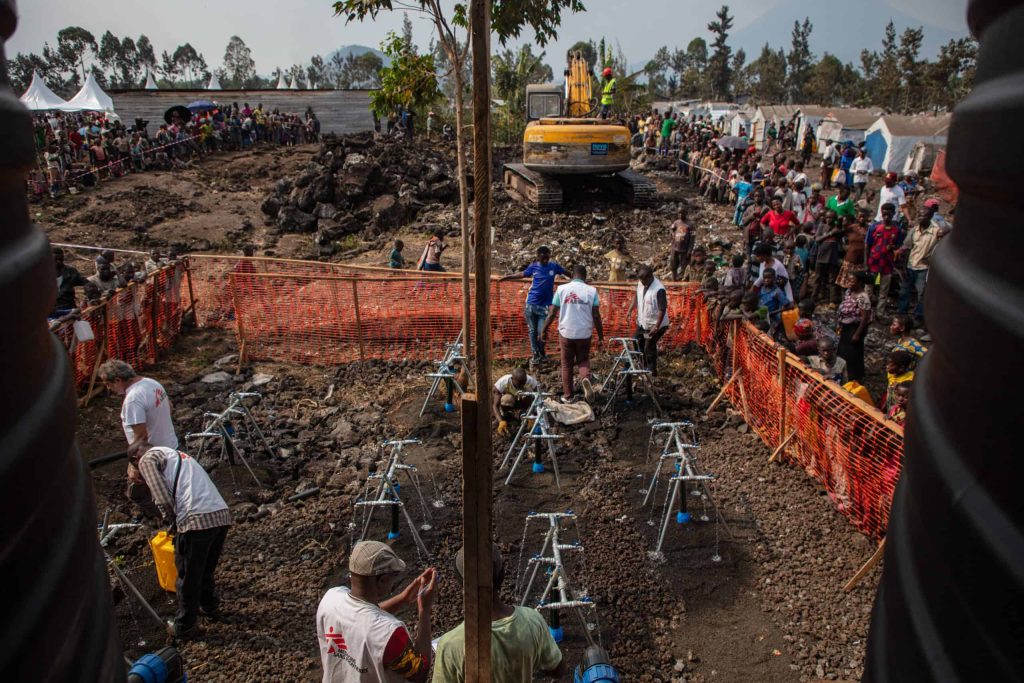
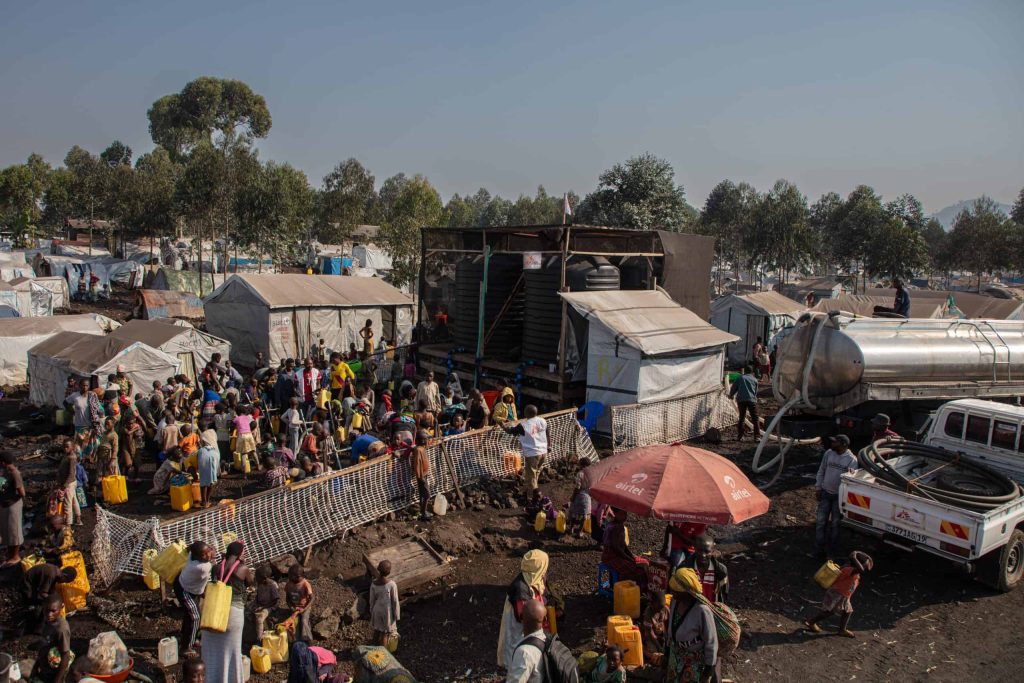
“We distribute 400,000 liters of water every day in Rusayo camp, but it is not enough to meet the minimum humanitarian standard of 15 liters per person per day,” explains Ottman El Ouartiti, water and sanitation (watsan) manager at MSF.
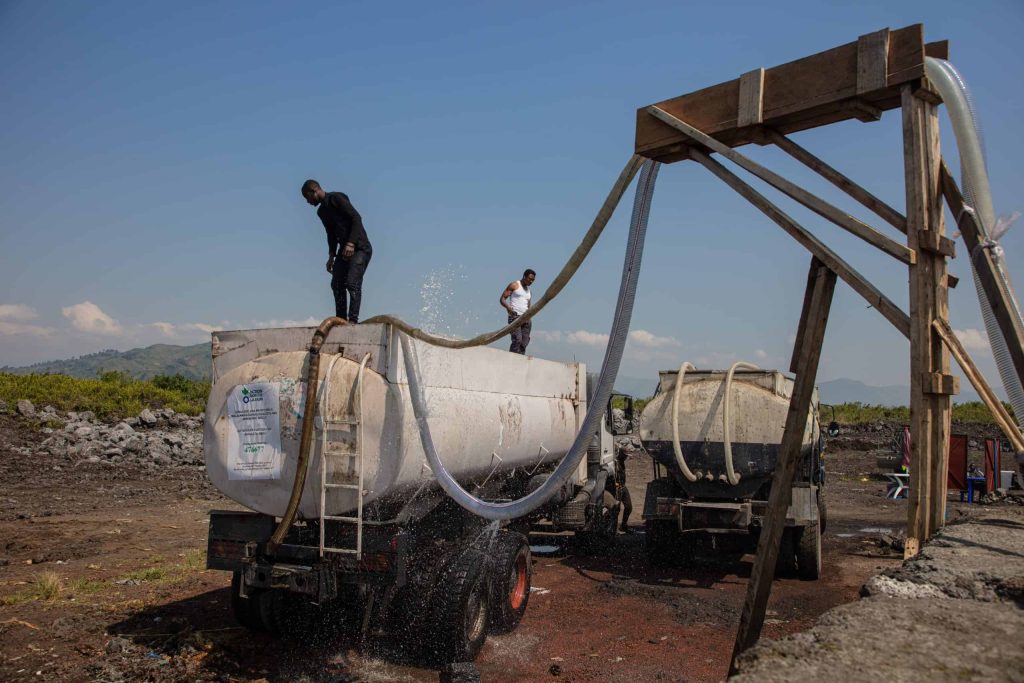
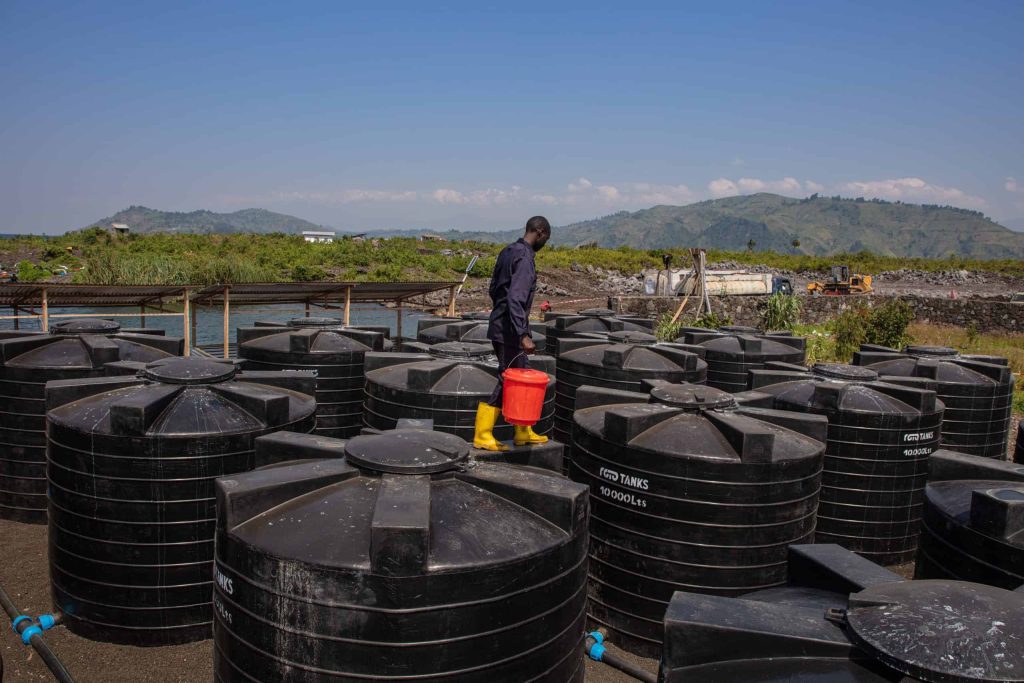
Despite their proximity to Lake Kivu, which is 90 km long and 50 km wide, some displacement camps have no access to a water treatment system. The situation is even more catastrophic in other camps around Goma, such as Kanyaruchinya, where some 100,000 people have taken refuge, with no access to water resources other than the ones distributed by humanitarian actors.
“I had no choice but to fetch water from the lake every day for my family. We drank it and cooked with it,” explains Tulia, who arrived at Elohim displacement site in January after fleeing the fighting in her village in the territory of Masisi. The consumption of untreated water coupled with extremely unsanitary conditions created the perfect conditions for the spread of cholera. Following the high increase of displaced populations coupled with the poor hygienic conditions in the camps, more than 4,000 cases were recorded in the health zone of Goma during the first six months of 2023, compared to 100 for the same period in 2022.
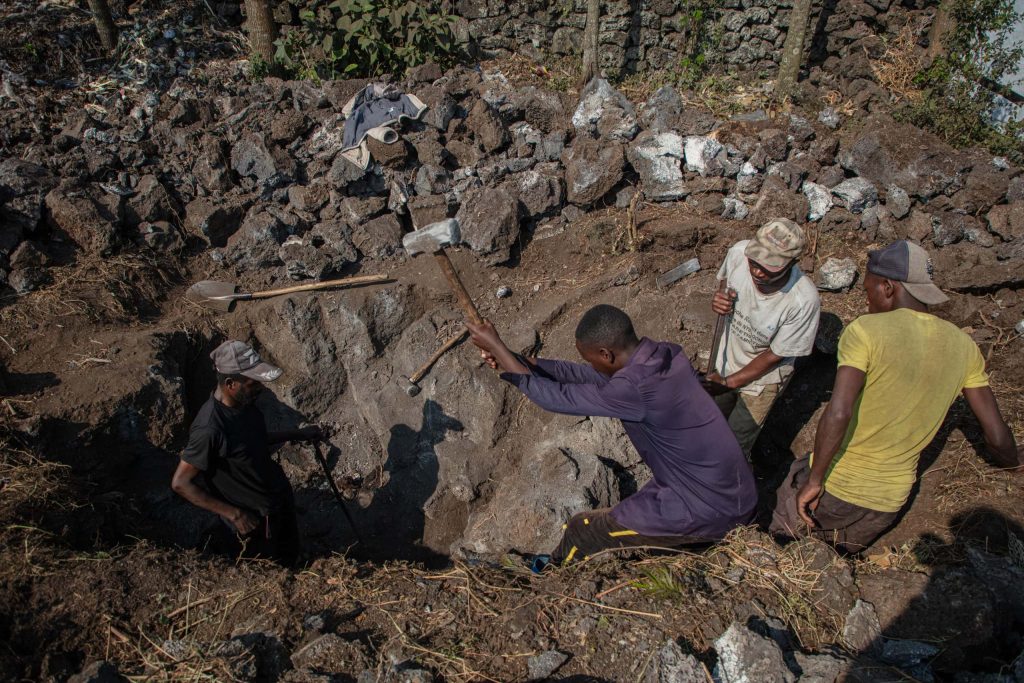
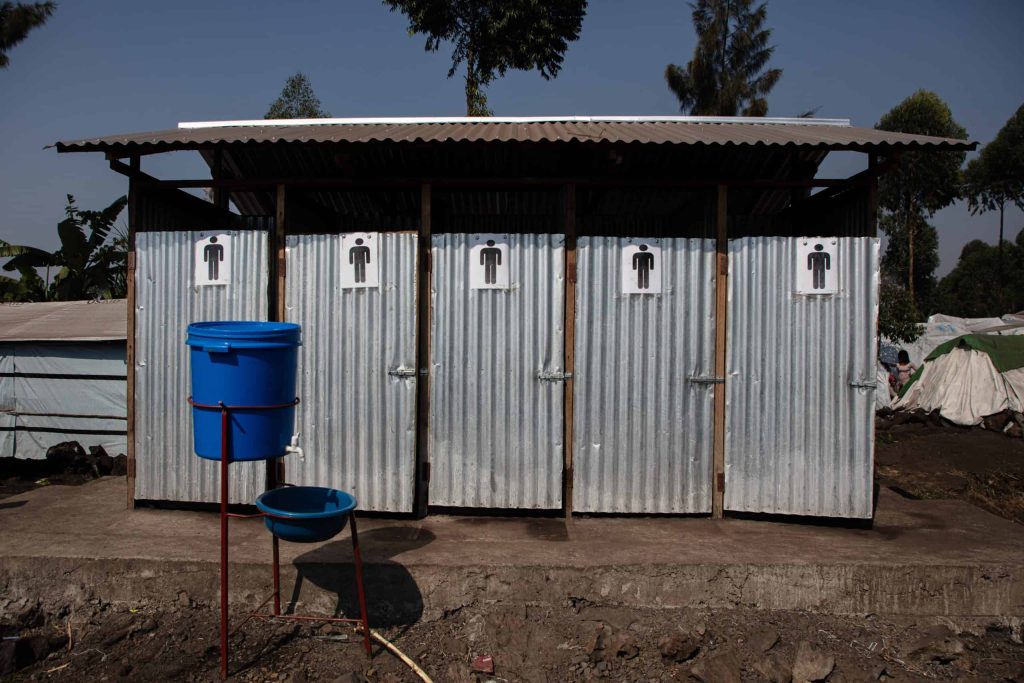
Thanks to its pumping and water treatment system, the station, which was installed by MSF on the shores of Lake Kivu, has a production capacity of 2 million liters of clean drinking water per day. The installation of a water treatment plant in March and the installation of 18 ramps and 126 taps in the Bulengo displacement camp has helped distribute water to a large proportion of residents, contributing to a drastic drop in cholera cases, with no cases reported since mid-June. In order to increase the water distribution capacity in camps located outside the lakeshores, a 3.5 km pipeline was built to connect the Bulengo water treatment plant with Lushagala displacement camp.
“Apart from the water flowing directly through the taps in Bulengo, Elohim, and Lushagala, we distribute around 800,000 liters of clean water per day to trucks that come directly to the station to fetch the water. Yet the population in the camps continues to live on just 5 liters of water a day, even though we have the capacity to treat more water” explains Jackson. In a context in which the water supply system installed by MSF was set as an emergency response, it is urgent that other humanitarian actors and Congolese authorities do more to improve access to water and hygiene in the camps in Goma, particularly through the construction of more sustainable infrastructures such as piping systems, and the installation of water treatment plants.
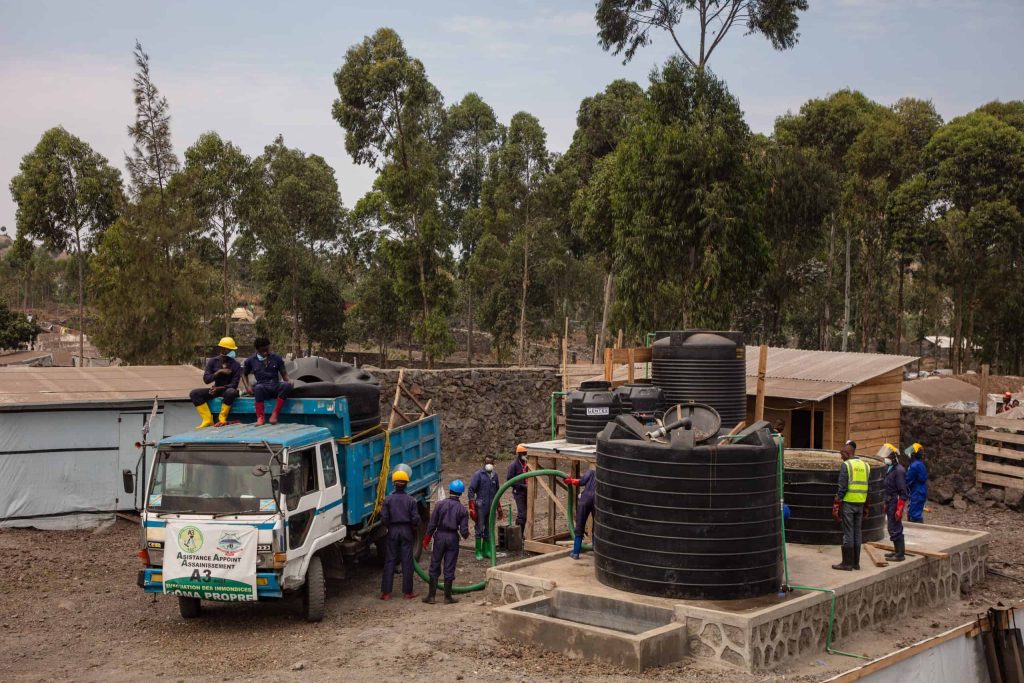
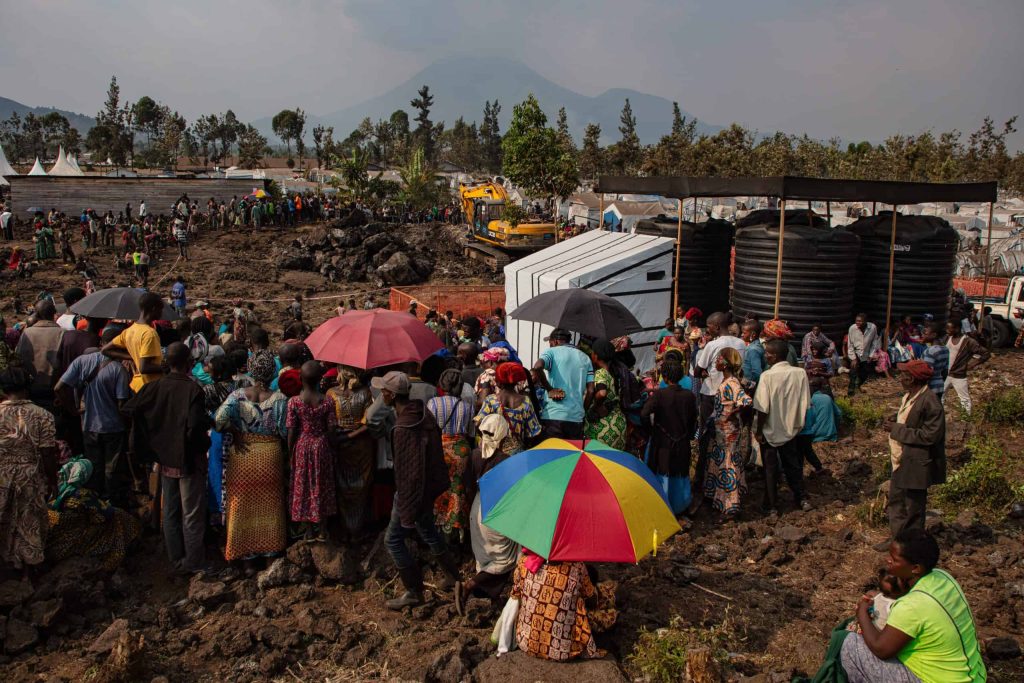
MSF teams also distribute water by trucking in Rusayo, Shabindu, Munigi, and Kanyaruchinya displacement camps. In Rusayo, the recent installation of a third platform capable of distributing up to 200,000 liters of water per day has brought relief to some of the camp’s residents. “Our objective is to distribute 600,000 liters of water per day thanks to these three platforms,” explains MSF watsan supervisor Nathan Muhindo. North of the city of Goma, MSF teams have also distributed 320 million liters of water in the Kanyaruchinya camp since July 2022, and are currently exploring and drilling in the Munigi camp to plan the installation of a more sustainable water distribution system.
MSF teams intervene in camps for internally displaced people around Goma, providing free medical care, supplying drinking water, and building latrines and showers to respond to the most urgent needs. MSF has also responded to the cholera and measles epidemics in the camps through medical care and organizing vaccination campaigns. In North Kivu, MSF continues to provide free essential medical care in the health zones of Rutshuru, Kibirizi, Bambo, Binza, Mweso, Masisi, and Walikale.











